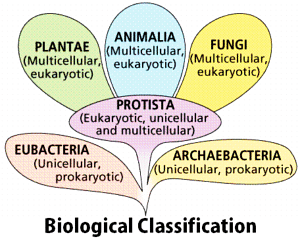Which one of the following are intracellular obligate parasites?
- Bacteria
- Viruses
- Slime moulds
- Blue-green algae
The Correct Option is B
Approach Solution - 1
Viruses are non-cellular, infectious, obligate, intracellular parasites. These are genetic elements (DNA or RNA) wrapped in a protein coat and are not considered to be organisms, as they cannot reproduce independently.
So, the correct answer is (B): Viruses
Approach Solution -2
Viruses are the intracellular obligate parasites. They are intracellular as they need to infect the host cell and there they reproduce and carry their life processes. They do not have the machinery to replicate and metabolise outside the host cell. They are obligate as they are completely dependent on the host for their life processes.
So, the correct answer is (B): Viruses
Top Questions on biological classification
- Which of the following microorganisms is used in the production of curd from milk?
- MHT CET - 2025
- Biology
- biological classification
- In a DNA molecule, which of the following base-pairings is correct?
- MHT CET - 2025
- Biology
- biological classification
- Which is not a prime element?
- MHT CET - 2025
- Biology
- biological classification
- Study the following and choose the incorrect combinations:
I. Phylum: Porifera, Special cells: Lasso cells, Example: Spongilla
II. Phylum: Cnidaria, Special cells: Stinging cells, Example: Hydra
III. Phylum: Ctenophora, Special cells: Choanocytes, Example: Pleurobrachia
IV. Phylum: Platyhelminthes, Special cells: Flame cells, Example: Fasciola- TS EAMCET - 2025
- Zoology
- biological classification
- Study the following and choose the correct combinations:

- TS EAMCET - 2025
- Zoology
- biological classification
Questions Asked in NEET exam
- A chemical reaction proceeds into the following steps Step I,$\hspace15mm 2A \rightleftharpoons X$ fast Step II,$\hspace10mm X + B \rightleftharpoons Y$ slow Step III,$\hspace10mm Y + B \rightleftharpoons $ Product fast The law for the overall reaction is
- Delhi UMET/DPMT - 2011
- Chemical Kinetics
- A solution is $0.1 M$ with respect to $Ag ^{+}, Ca ^{2+}, Mg ^{2+}$ and $Al ^{3+}$, which will precipitate at lowest concentration of $\left[ PO _{4}^{3-}\right]$ when solution of $Na _{3} PO _{4}$ is added?
- Delhi UMET/DPMT - 2011
- Equilibrium
- How many $ 1\,\mu F $ capacitors must be connected in parallel to store a charge of $1\, C$ with a potential of $110\, V$ across the capacitors?
- Delhi UMET/DPMT - 2011
- electrostatic potential and capacitance
- Most stable carbocation is
- Delhi UMET/DPMT - 2011
- Organic Chemistry
- Given a gas phase reaction, $\hspace10mm 2A(g)+B(g) \rightleftharpoons C(g)+D(g)$ Which one of the following changes will affect the value of $K_c$?
- Delhi UMET/DPMT - 2011
- Equilibrium
Concepts Used:
Biological Classification
The process of grouping living organisms into categories is called biological classification. The most modern 5-kingdom classification was put ahead by an eminent scientist R.H.Whittaker. The five-kingdom classification is based on the criteria like cell structure, mode of nutrition, body form, and reproduction. One of the most important characteristics of this system is that it follows the evolutionary sequence of living organisms. The organisms are classified into distinct taxa or levels like Kingdom, Phylum, Division, Class, Order, Family, Genus, and Species. The 5 kingdoms are as follows:
